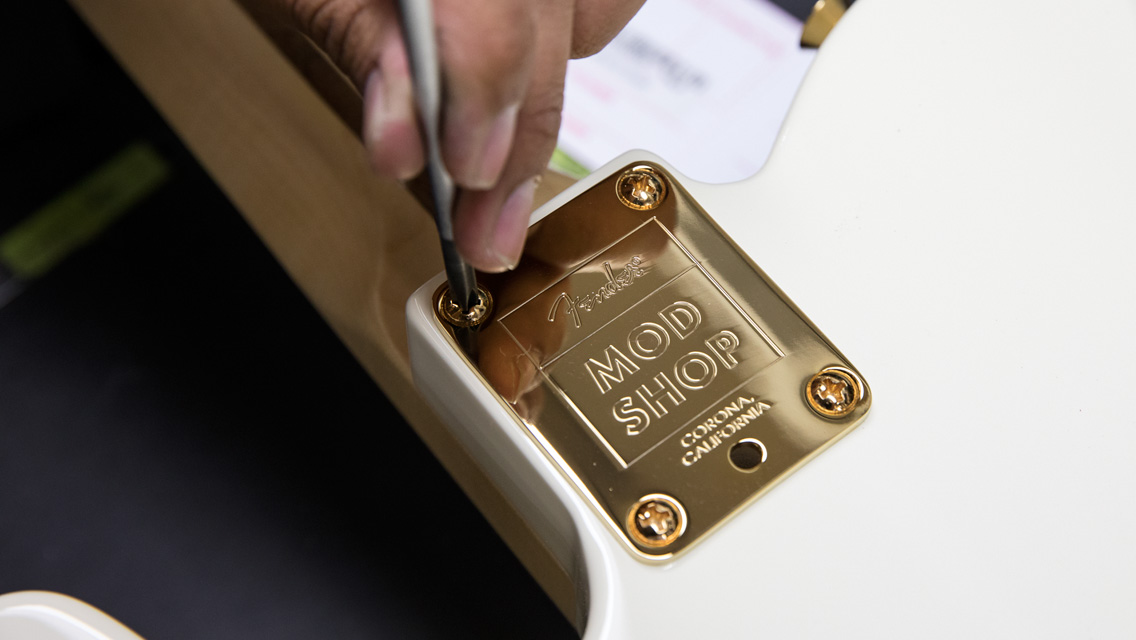By Mike Duffy
Fender's New Elite Fingerboards: What Is Ebony?
Going inside the tonewood that will now be used on Fender's American Elite guitars and basses.

Earlier this year, Fender teamed up with Guitar Center to make a special run of 350 CITES laws regulating how rosewood is traded internationally came into effect on Jan. 2, 2017, it wasn’t a difficult decision as to what to apply to the American Elite Series as a replacement.
“Ebony is a wood that is commonly used on fingerboards, along with maple and rosewood,” said Vice President of Fender and Squier Electric Guitars and Basses Product Development Joey Brasler. “We had worked with the streaked ebony before, so we were pretty well-versed with it.”
CITES (or the Convention of International Trade of Endangered Species of Flora and Fauna) is a global agreement that has existed since 1975 to ensure international trade of wildlife does not threaten the health of species and ecosystems.
In a conference held in late 2016, it was decided that rosewood, namely Indian and Indonesian rosewood (more specifically, the genus Dalbergia and three bubinga species -- Guibourtia demeusei, Guibourtia pellegriniana, and Guibourtia tessmannii), will be protected under CITES Appendix II. That meant any transportation or shipment of an instrument or instruments for commercial purposes with any amount of rosewood requires a CITES Export Certificate issued by the U.S. Fish and Wildlife Service, and possibly a CITES Import Permit required by the receiving country.
So just as Fender pivoted to pau ferro fingerboards on guitars and basses in the Standard Series, Deluxe Series and Classic Series, in addition to many other instruments made in Mexico, ebony was the tonewood of choice for the American Elite guitars and basses made in Corona, Calif.
Brasler noted that tonally, ebony sits somewhere in between maple and rosewood, with a pleasing brightness that works well with the fourth-generation Noiseless pickups in the American Elite Series. “It’s still a warm wood with articulate mid-range and highs,” he said.
Players will notice, however, that the ebony on the American Elite guitars and basses is not all-black, like some ebony fingerboards are. The streaks that run through the ebony fingerboards on the American Elite Series are completely natural, as the wood is sustainably harvested in West Africa.
Like most tonewoods, ebony grows with varying degrees of color, and only approximately one out of every 10 ebony trees are uniformly black. The other multi-colored wood would typically be left behind in the forest – a waste.
“Most people perceive ebony as a black wood, but it actually can have lighter streaks in it,” said Brasler. “Loggers would leave ebony with lighter streaks in it sitting on the forest floor because they were looking for darker wood. These fingerboards are all-natural and high quality. It’s really an upgrade, a premium tonewood.”
Don’t miss out!
Be the first to know about new products, featured content, exclusive offers and giveaways.


